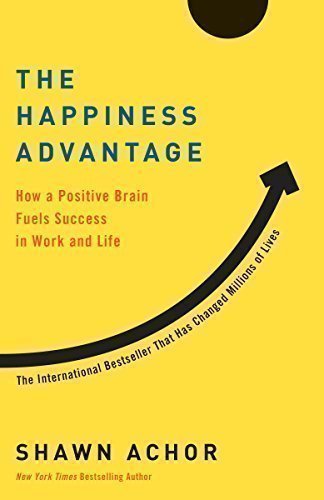Let’s start with a very simple but important principle – achieving anything in life involves avoiding certain behaviours and adopting other behaviours. If you want a certain result in any area of your life, you need to do certain things consistently while avoiding doing other things as consistently. The same holds true for your happiness. We know that happy people avoid certain causes of unhappiness like the plague, and if you’re doing these things, chances are you’re not as happy as you could be. There is still more to discover and experience.
So what is this post about?
The easiest way to answer that is perhaps to say what it’s NOT about.
It’s not about the science of happiness and all the advantages it holds for your life.
If you want to learn more about that, I would encourage you to read Shawn Achor’s book “The Happiness Advantage.”
In his book, he teaches a very important principle that says,
IF YOU OBSERVE the people around you, you’ll find most individuals follow a formula that has been subtly or not so subtly taught to them by their schools, their company, their parents, or society. That is: If you work hard, you will become successful, and once you become successful, then you’ll be happy … The only problem is that this formula is broken … because it is backward.¹
He makes the case that more success doesn’t lead to more happiness.
In fact, it’s quite the opposite.
More happiness typically leads to higher performance, productivity, creativity, motivation, and success.
I would argue that the same principle also applies to our love relationships.
Happy relationships don’t lead to more happiness.
No, happy individuals create happier relationships
And that’s what this post is about specifically.
Learning from happy people as role models, what do they do differently from unhappy people?
And more importantly, what causes of unhappiness do happy people also avoid doing compare to unhappy people?
We know that some people have a natural inclination towards happiness, meaning happiness as a disposition comes easier for some due to factors such as genetics.
However, happiness is also a learnable skill.
Yes, it’s a skill.
We can observe others who are genuinely happy, study them, and model their outlook on life, thinking processes and behaviour.
Now that might require some work for some, but it’s still replicable if you’re willing to put in the effort.
If it’s important to you of course.
There are definitely advantages to happiness that massively outweigh a more sombre and unhappy approach to life, but it’s still a choice.
With that being said, let’s now look at eight (8) specific behaviours we know unhappy people do consistently but happy people avoid for the most part.

And as you go through the list, make a mental note of those you’re guilty of and commit yourself to stop doing them as much (not at all would be ideal).
8 causes of unhappiness You must avoid if you want to be happier:
Dwelling on the past.
Unhappy people spend a fair amount of time dwelling on the past.
Differently put, they loved dwelling on things they have absolutely no control over any longer.
I mean, think about it for a moment – feeling bad about something that’s already happened doesn’t make a lot of sense.
The truth is that without a time machine, there’s nothing you can do.
So why dwell on it?
Just because it is easy to do, doesn’t mean you should do it.
Or that it’s a good thing to do.
Late for your job interview yesterday? How will feeling bad about it help now?
Mad at yourself for not being a better boyfriend to Cornel Smit (my first girlfriend) in 11th grade? It’s too late now.
So leave the past alone and focus on today.
Life only happens in the present.
You’re wasting your life by being focused on the past or the future.
Speaking about the future …
Worrying about the future.
Unhappy people also typically spend a fair amount of time worrying about the future.
But worrying about the future isn’t much better than being bitter about the past, is it?
The ancient Jewish Rabbi Yeshua (Jesus) once taught that there is no point in worrying about tomorrow as no one can add a single hour to their life by worrying about it.
So focus on today.
The reality is that both perspectives (regret about the past or worry about the future) sacrifice your present and ruin your mood.
Yes, reflect on the past, but learn from it rather than become imprisoned by it.
Yes, prepare for the future, but avoid worrying about it.
In fact, here is a truth that will really mess with you – most of your concerns right now will never happen anyway.
Some might, but not all.
I really like a quote credited to Lao Tsu that says:
If you are depressed you are living in the past. If you are anxious you are living in the future. If you are at peace you are living in the present.
Lao Tsu
I think it captures the previous two points very well.
Holding a grudge.
This is a big one … holding a grudge.
Like the previous two points, this is an absolutely pointless way of spending your time and energy.
Also, realise that refusing to forgive others only hurts YOU.
The late Nelson Mandela is credited to have said,
Holding onto anger is like drinking poison and expecting the other person to die.
Nelson Mandela
And the really ironic part is that half of the people you’re mad at don’t even know it.
They’re going about their lives without any concern for you.
They are not even giving you a second thought.
So, again – who are you actually punishing?
Only yourself.
If you want to be like happy people, let go of the grudges.
Comparing themselves to others.
If you want a shortcut to unhappiness, this is it.
With almost 8 billion people on Earth, there’s always going to be someone who’s wealthier, better looking, smarter or more successful.
Comparing yourself to others is a zero-point game where everyone loses, especially when you compare your weaknesses to others’ strengths.
Unhappy people love doing that … take their worst and compare it to someone else’s best, only to feel really shit as a result.
But I ask you – WHY do that?
Seriously.
Happy people avoid comparing themselves to others.
And if they do compare themselves to someone, it would be themselves in the past.
How they used to be and how far they’ve come.
But that’s a game you can win because there is usually some improvement, even if it’s only having more experience.
It’s still a win.
So they feel good about themselves.
Ignoring the positive.
It’s an evolutionary and biological reality that humans are programmed to look for danger and focus on the negative.
It’s what helped us survive in a fairly hostile environment for so long.
However, even though this reality has most likely saved our bacon a couple of times over the centuries, it also makes it very easy to ignore all the positive things going on in your life.
Now, this is not about focusing on the negative (which is the next thing unhappy people do a lot), but rather about simply ignoring the things that are positive.
It’s almost worse than focusing on the negative because not wanting to see what is good in your life is bound to make you seriously unhappy.
I mean, how could it not?
But, you can counteract this tendency by making a list of all the good things in your life that you are really grateful for and reading it each day.
Make a habit out of this.
Keep the list by your bed and read it every morning and night.
Focusing on the negative.
This point flows on from the previous one.
Happy people tend to focus on the positive rather than the negative.
It is not about being in denial about the negative stuff going on in their lives, they just choose to look at it differently.
They choose to focus on the positive more than dwell on what is negative.
Because, as I said earlier when you look at everything that isn’t the way you’d like it, it’s easy to feel depressed and hopeless.
But, again, give fair time to the positive things in your life.
You have plenty of them.
Worrying about the opinions of others.
As in the case of comparing yourself with others, unhappy people typically worry about the opinions of others.
Now there are various reasons for this, but it usually has to do with some low sense of self-esteem and a need to be validated by others.
The interesting thing is that many of us struggle with this habit at some stage in our lives, especially during adolescence, but we tend to move through it.
We learn to accept ourselves and care more about our own opinion than that of others.
Sadly, however, many get stuck in this.
Many people go through life constantly worrying about the opinions of others and looking for validation.
Now, in the context of a marriage or love relationship, this can become very taxing especially on the partner constantly having to build up the one with the low self-esteem.
So getting rid of this behaviour is absolutely vital if you want to be happy.
And adding to this, you’re never actually free if you’re constantly worried about what others are thinking.
It taints every decision you make.
The last behaviour that happy people tend to avoid, if they can, is …
Staying in a job they dislike.
I absolutely understand that the financial pressures of modern-day life don’t always allow us to be picky with the jobs we take.
However, on the other side of that coin, is the reality of more available opportunities due to technology than ever before.
More and more people are looking and shifting away from the “industrial model” to a more “freedom centred model.”
That doesn’t mean that they are working any less or any less successful – it simply means they’re utilising the opportunities of the modern-day world.
But even if that’s not you, and you don’t care what type of job you do, it still doesn’t make sense to spend 8+ hours each day in a way you despise.
So, given your skillset and context, find work that you find agreeable (enjoyable even) and you’ll definitely remove one of the primary causes of unhappiness.
Unhappy people tend to stay in jobs they seriously dislike.
Happy people, on the other hand, do what they must but always keep looking for opportunities to create the life they want.
Take away …
Are you as happy as you’d like to be?
If not, there are certain things you must avoid doing if you want to maximise your happiness.
And on the other hand, start doing more consistently.
Happiness is a choice you must make each day.
Failing to choose happiness is choosing unhappiness.
You have to make the effort if you want to experience happiness on a regular basis.
It won’t just happen by default.
Consider your perspective of the world. Is it making you happier or less happy?
How do you spend your time?
What do you think about?
What changes can you make that will shift your life toward happiness?
Really spend some time thinking about these things, as these ideas can truly change your life.
I hope this gave you some good food for thought.
¹ Achor, Shawn. The Happiness Advantage: The Seven Principles of Positive Psychology that Fuel Success and Performance at Work (p. 3). Ebury Publishing. Kindle Edition.



